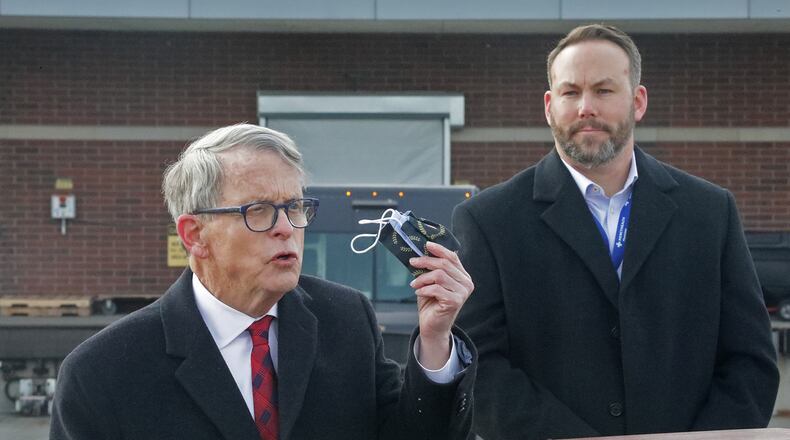After the curfew was extended for the third time in January, DeWine announced different markers Ohio could hit to loosen restrictions.
If the state reported less than 3,500 hospitalizations for seven days in a row, the curfew would be from 11 p.m. to 5 a.m. If they stayed under 3,000 for seven consecutive days the curfew would be from midnight to 5 a.m. To get rid of the curfew completely, Ohio would have to report less than 2,500 hospitalizations for a week.
However, if hospitalizations start to increase again, Ohio could see the curfew reinstated. While it is not clear what criteria the governor will use if the state is considering a curfew again, DeWine said he would continue to watch hospitalizations, among other things.
“It’s crucial that we all continue safety protocols to slow the spread and prevent hospitalizations from going up,” he said.
Prior to the statewide curfew, Ohio bars and restaurants were unable to serve alcohol after 10 p.m. The governor said there are no plans to reinstate a 10 p.m. last call at this time.
Next week, Ohioans born with or who have early childhood conditions that carried into adulthood will be eligible to receive the vaccine. This group has been identified as having a high-risk of an adverse reaction if they get coronavirus, DeWine said.
While the group includes Ohioans under the age of 65, Ohio Department of Health Chief Medical Officer Bruce Vanderhoff noted that the Pfizer vaccine has not been approved for people younger than 16 and the Moderna vaccine hasn’t been approved for those younger than 18.
Next week, Ohioans with certain conditions they were born with or those who were diagnosed in childhood and carried into adulthood will be able to begin receiving #COVID19 vaccines. Individuals with these conditions face a significantly higher risk for adverse COVID-19 outcomes. pic.twitter.com/QX0WxSRDyu
— Governor Mike DeWine (@GovMikeDeWine) February 11, 2021
Currently, people ages 65 and older, K-12 school staff and Ohioans with a severe congenital, developmental or early onset medical disorder and an intellectual or developmental disability are eligible to be vaccinated.
Ohio is working to promote vaccine equity by holding vaccination clinics at affordable senior housing complexes throughout the state.
The program aims to help older Ohioans who may face issues with transportation, access to the internet or other barriers that would prevent them from registering and traveling to a vaccine clinic.
Ohio Department of Aging Director Ursel McElroy said 1,300 housing complexes in urban and rural areas have been identified for the program.
The Ohio National Guard is administering the vaccines and working with local agencies to coordinate the clinics.
The program also helps the Department of Aging connect with Ohioans who may be isolated or haven’t been able to leave their residence since the pandemic. Local Area Agencies on Aging will also be on-site at the clinics to give seniors information about other resources.
Ohio reported 2,806 daily cases of coronavirus Thursday, with the state’s 21-day average dropping below 4,000 for the first time in 2021.
Since the pandemic began, Ohio has recorded 931,437 total cases, according to the Ohio Department of Health. As of Thursday, the state is averaging 3,892 cases a day.
Ohio reported 721 deaths on Thursday, with 650 included as part of the state’s work to reconcile thousands of coronavirus-related deaths in November and December that the state previously did not include.
“Newly reported deaths will be higher during the next few days as ODH completes this reconciliation,” read a statement posted on the ODH COVID-19 dashboard.
The dates of deaths reported on the dashboard will accurately reflect when the person died despite being reported this week.
Ohio reported 189 hospitalizations, bringing the state’s total to 48,269. ICU admissions increased by 19 Thursday for a total of 6,908.
As of Thursday, 1,161,056 people in Ohio have received one dose of the vaccine and 374,380 have completed their vaccination.
Next week, Ohio is scheduled to receive a total of 223,025 coronavirus vaccine, DeWine said.
About the Author

